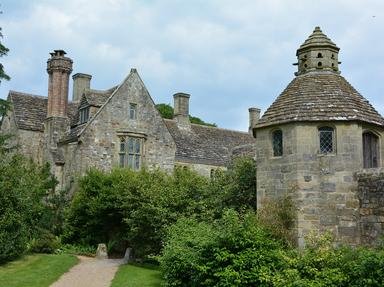Quiz Answer Key and Fun Facts
1. William Collins, the absurd parson from 'Pride and Prejudice', visited the Bennet family with the aim of picking one of the five sisters to be his wife, but instead ended up marrying a different woman. Who became Mrs Collins during the course of the novel?
2. Charles Hayter from Jane Austen's 'Persuasion' was a cousin of the Musgrove family who earned a meagre living as a curate. What was the name of his father's property, to which he was the heir?
3. In 'Mansfield Park', Fanny Price's Aunt Norris was the wife (and later the widow) of a clergyman named Mr Norris. He was chiefly mentioned in the novel only in the context of his wife's comments about his "indifferent state of health". Which of these quotes was not said by Mrs Norris about Mr Norris?
4. In 'Sense and Sensibility', Edward Ferrars attended Oxford University, but had no particular desire to be ordained until he was disinherited by his mother and an offer of a living as clergyman became his best hope of gaining employment. Why was he disinherited?
5. Mr Morland, the father of the heroine of 'Northanger Abbey', was described rather disinterestedly by Austen as "a clergyman, without being neglected, or poor, and a very respectable man". What was his Christian name?
6. In 'Mansfield Park', which clergyman took over the living of Mansfield following the death of Mr Norris?
7. The eponymous heroine of Jane Austen's 'Emma' declared at the start of the novel that her last matchmaking effort would be to find a wife for the local clergyman, Mr Elton. She promoted her friend Harriet Smith for the role of Mrs Elton, but to whom did Mr Elton actually propose marriage?
8. A former curate of the village of Monkford was an unseen character in Jane Austen's 'Persuasion'. Which main character of the novel was his brother?
9. In 'Northanger Abbey', Henry Tilney met his future wife, Catherine Morland, while she was staying with Mr and Mrs Allen in Bath. Mr Allen duly investigated Tilney's background and discovered that he was "a clergyman, and of a very respectable family in" which English county?
10. Despite spending the majority of 'Mansfield Park' hopelessly in love with Mary Crawford, Edmund Bertram eventually ended up happily married to his cousin Fanny Price. At which parsonage did they begin their married life?
Source: Author
Fifiona81
This quiz was reviewed by FunTrivia editor
looney_tunes before going online.
Any errors found in FunTrivia content are routinely corrected through our feedback system.
